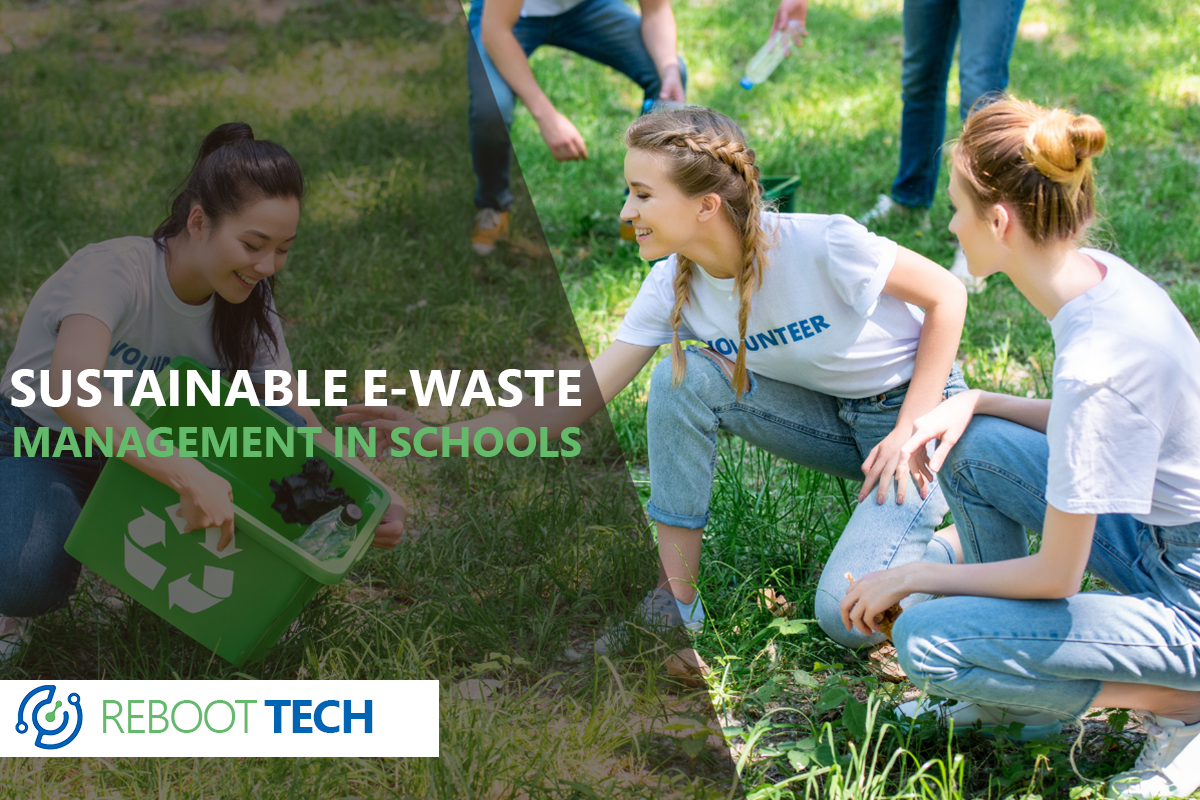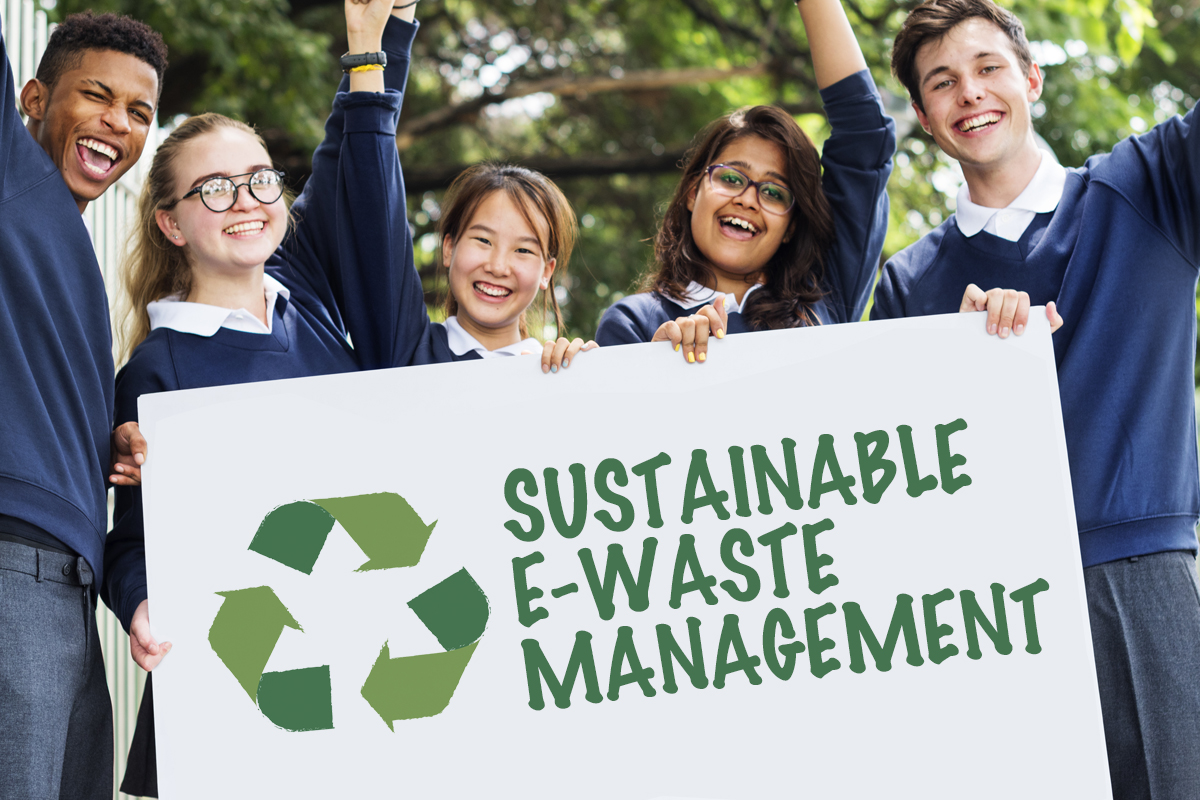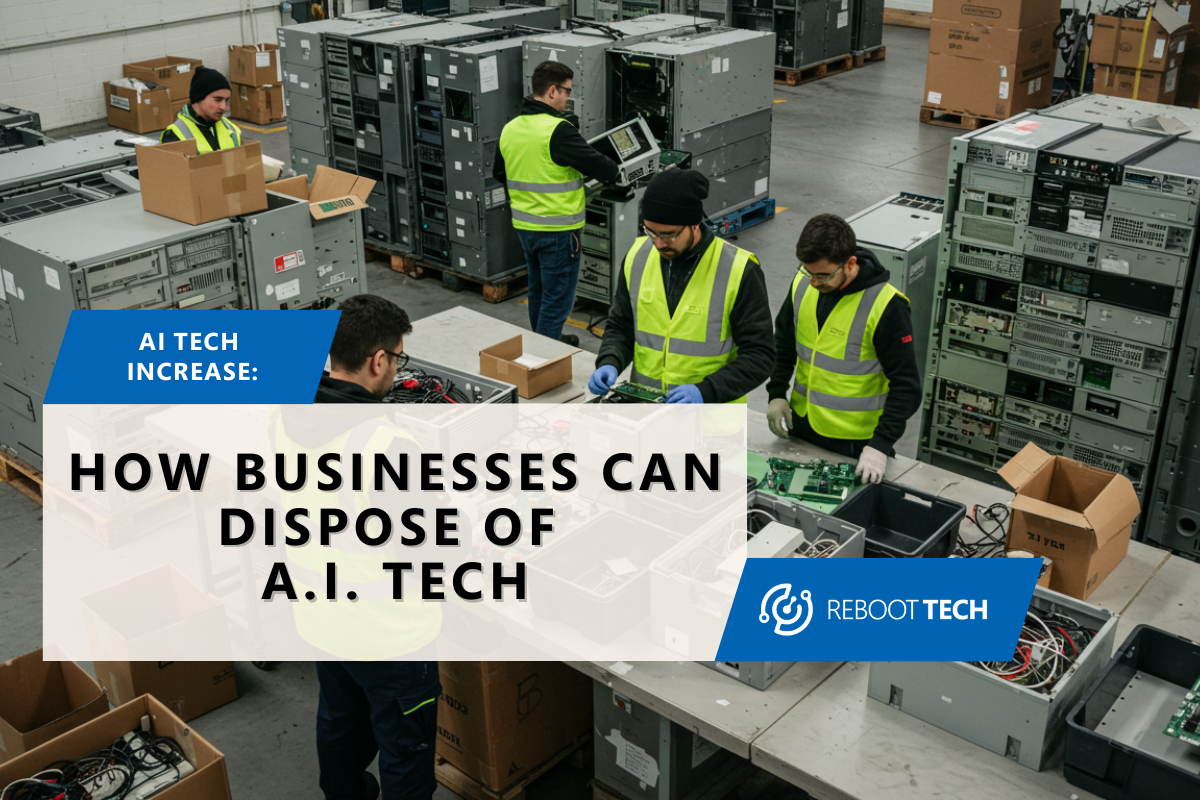
Sustainable Management in Schools:
Why Proper Electronics Recycling is Crucial
As schools bring more technology into classrooms, dealing with electronic waste, known as e-waste, becomes even more important. Computers, tablets, and smart boards are good tools that aid learning, but as schools accept more of these technologies, they must also handle their electronic devices properly to protect the environment and personal data.
Cutting down e-waste in schools has a lot of benefits.
When schools recycle old electronics, they stop harmful elements from going to landfills, where they could damage the environment. Improper electronics recycling is dangerous as they have lead, mercury, and arsenic which may contaminate air, water, and soil. Certified e-waste recyclers take apart these materials using environmentally friendly methods, sometimes fixing them to make them last longer and even making money for districts.

Data security is another important factor.
Devices used by schools often have private information about students and staff, so it’s important to avoid data leaks. For instance, school devices may have students’ grades or teachers’ addresses, which is why it’s crucial to make sure that the data is completely removed. Working with e-waste recyclers that remove IT assets ensures that sensitive data is destroyed, either by erasing it or by physically destroying the hard drives.
Plus, handling e-waste properly shows students the importance of being eco-friendly early on. When schools get students and the community involved in e-waste projects, it helps them build good habits for recycling electronics throughout their lives. Fun ideas like letting students take apart old electronics or organizing events can get kids interested and teach them about how e-waste affects the environment.
To set up a good e-waste program, schools should:
- Team up with trusted recyclers who care about the environment and keep data safe.
- Establish clear rules for handling old electronics and train staff for smooth recycling.
- Engage students and the community through events and educational seminars.
- Involve students with hands-on activities like campus tabling, events, and e-waste donation bins.
- Educate students on the significance of sustainable e-waste recycling. All this, and more, can teach students the importance of sustainable e-waste recycling.
Nowadays, sustainable e-waste management is even more important, especially for schools; they need to make sure they’re getting rid of old electronics in a safe way.
This is a chance for schools to show they care about the environment, save resources, and keep their data safe. By recycling old electronics properly, schools can help make a brighter future while still using technology to help students learn, without hurting the planet.





